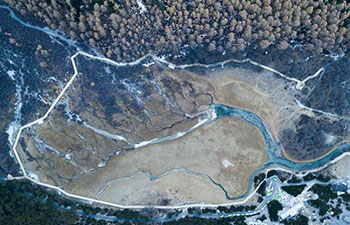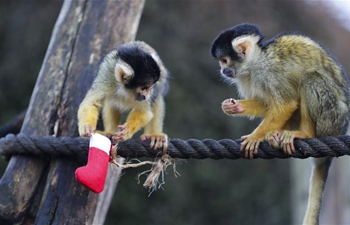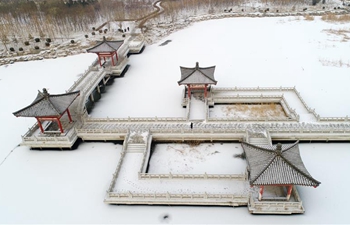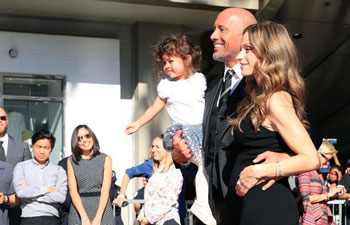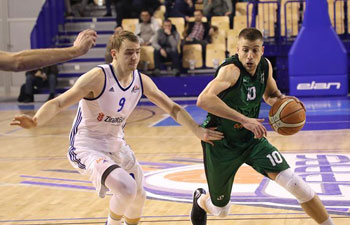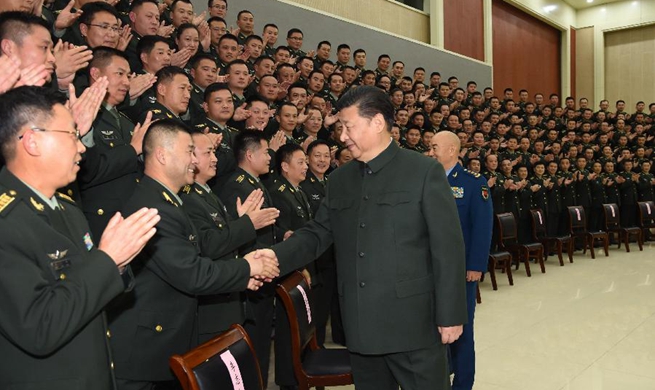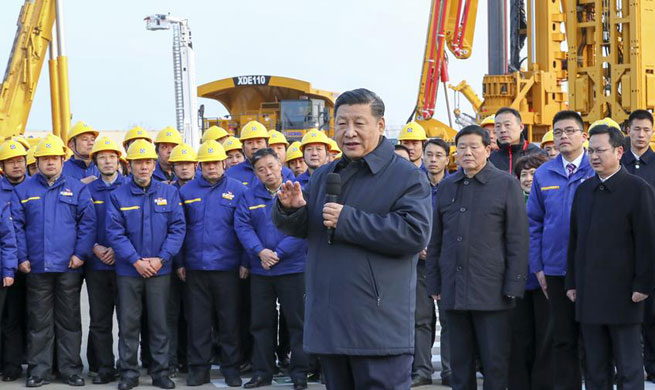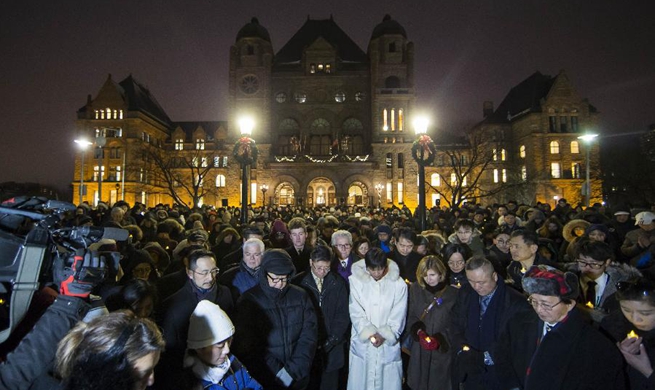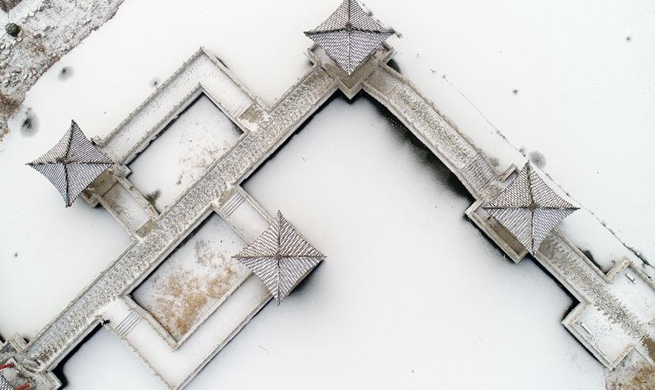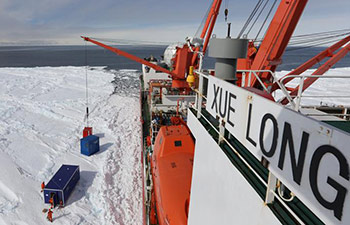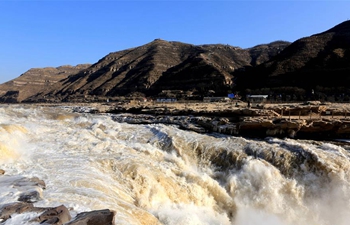CAIRO, Dec. 14 (Xinhua) -- Lebanese breathed a sigh of relief early the month when a political crisis, triggered by the abrupt resignation of Prime Minister Saad Hariri, ended with his withdrawal of the decision shortly after returning home.
However, Lebanon is still inching its way to restore stability, with political balance broken and economy paralyzed by political rivalries.
HARIRI'S MYSTERIOUS RESIGNATION
Hariri's resignation on Nov. 4 prompted the fear of conspiracy, as it was announced by him from a television station in Riyadh, the capital of Saudi Arabia.
Some believed that he made the speech under duress, in which he denounced Lebanon's Hezbollah and Iran for meddling in regional affairs, a strong departure from his previous promises to maintain political unity.
Hariri called the resignation a "positive shock," expressing deep concern about the danger his country is facing. Also, being the son of former assassinated Prime Minister Rafik Hariri, he expressed his fear of an assassination attempt against him.
The resignation mirrored the fierce tug of war between two regional powers, namely Saudi Arabia and Iran. Iran has been accused of supporting Lebanon's militant political party Hezbollah, which Riyadh slammed for declaring war against the kingdom.
Hezbollah is gaining strength in the region, through joining the civil war in Syria, combating the terror group Islamic State in Iraq, and supporting Yemen's Houthi rebels with armament to fight a Saudi-led coalition
But in a dramatic turn, Hariri delayed his resignation in later November when he returned home. On Dec. 5, he finally rescinded the resignation after meeting with President Michel Aoun.
The withdrawal was made with reaffirmation of a state policy of non-interference in external conflicts by the coalition government including Hezbollah.
Hariri told reporters after a cabinet meeting in which he announced the withdrawal that "all groups in the Lebanese government are committed to dissociating themselves from regional conflicts."
Analysts believe that Hariri's resignation withdrawal and the consensus deal he reached with rivals offer chance to maintain Lebanon's political stability, after a narrow escape of a political earthquake within the one-year-old government.
PROXY WAR IN LEBANON
The resignation crisis was believed to be triggered by the growing rivalry between Saudi Arabia, the leader of the Sunni Muslim world, and Iran, which has the largest Shiite population.
The Sunni allied Hariri, together with his Future Movement party, has close ties with Saudi Arabia, a country where Hariri himself was born.
President Aoun won the election in October 2016 after gaining the consent from Hezbollah. Aoun then tasked Hariri with forming the coalition government, which includes a few ministers close to Hezbollah.
Saudi Arabia is reportedly eager to open up a new battlefield with Iran to flex its muscles.
Moreover, Riyadh also thinks that Lebanon's foreign policy and the involvement of Hezbollah in regional wars is manipulated by Iran.
On Dec. 8, French President Emmanuel Macron called on foreign powers to stop interfering in Lebanon's politics to preserve the country's stability and peace in the region.
"It's essential that all Lebanese parties and regional actors respect the principle of non-interference," Macron said.
UNCERTAIN FUTURE
Lebanon is bracing for the parliament election in 2018. In June, the parliament ratified a new electoral law to hold national elections, which have not been held since 2009. Last month, the government also passed Lebanon's first budget since 2005.
Hariri praised the new election law as a "historic achievement."
He also vowed in April to perform the duty of "regaining confidence after years of constitutional vacuum, deadlock in institutions, vertical political divide, tensions in Arab and international relations, and bleakness in economy and investment."
However, the protracted paralysis of the government, as well as the recent crisis, has shaken the country and its economy by adding up uncertainty to the government's plan of either investing in infrastructure, or exploring its potentially vast gas field.
In the meantime, Lebanon hosts over 1.5 million Syrian refugees, 550,000 Palestinian refugees, and 20,000 Iraqi and Sudanese refugees, whereas its total population does not exceed 4 million.
Lebanon has long been sticking to a power sharing pact among its coexisting religions, which stipulates that the president should be a Christian Maronite, the speaker a Muslim Shiite, and the premier a Muslim Sunni.
But the delicate political balance is easy to break, especially when it is under rising pressure of external intervention.
Hariri, a fierce opponent of the Syrian government led by President Bashar al-Assad, is the leader of a bloc that rivals Hezbollah and enjoys the support of Saudi Arabia.
At the same time, President Aoun is allied with the Iran-backed Hezbollah, whose forces are fighting in Syria alongside Syrian government forces.
So it remains to be seen if the new Lebanese government can deliver its promise to maintain a "national accord," and de-escalate the political rivalry hindering advancements in the country.




